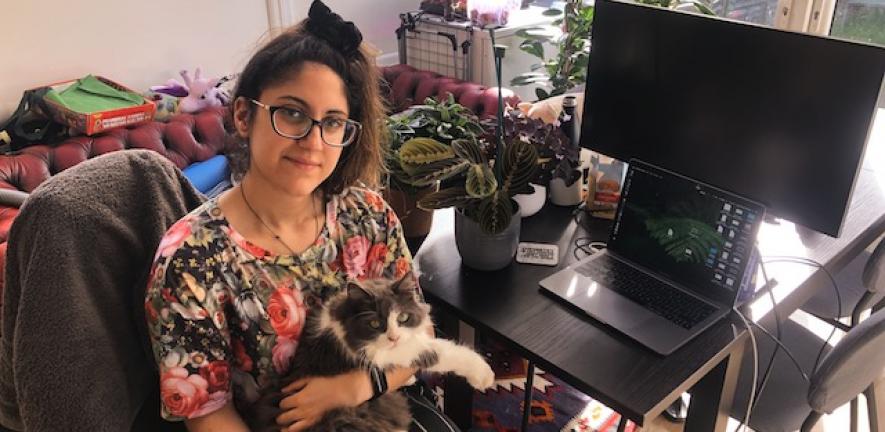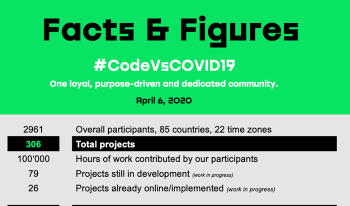
Layla Hosseini-Gerami is a 2nd year PhD student in the Bender research group, where she works on computational models that screen and analyse biological data for potential applications in drug discovery and other areas.
 At the end of March she took part in "CodeVsCOVID19" – a 72-hour not-for-profit hackathon competition organised by HackZurich to develop open-source prototypes to help fight the COVID-19 crisis.
At the end of March she took part in "CodeVsCOVID19" – a 72-hour not-for-profit hackathon competition organised by HackZurich to develop open-source prototypes to help fight the COVID-19 crisis.
Layla’s team (Covics-19) worked together online for an intensive weekend to create a programme that could predict a country’s required medical resources for a three-week period, compare these to the country’s healthcare capacity, and show which nearby regions could share excess resources.
"I thought it sounded like a really cool idea," says Layla. "Some countries have lots of resources and are coping well with the virus, and some are really struggling, so I thought it would be interesting to work out how we could get them to help each other."
Layla’s role in the project was to develop a model to predict a country's infection rate over a three-week period. "In the ideal world, we would be able to predict how many cases there would be in a particular country in the next few weeks, translate that to the number of hospitalised cases, and from that determine how many resources would be needed," she says.
Over the weekend Layla was able to create a simple model to make these predictions (using World Bank data), but she admits this is a complex problem and she would have liked to create a more nuanced model.
The team posted their finished project online 10 minutes before the deadline. The easy-to-use app allows the user to click on any country to view its number of predicted cases in a three-week period, show whether the country has the healthcare capacity to cope, and indicate the nearest region with excess capacity that could be shared.
Although Layla’s team did not win the competition, they are applying to HackZurich for further support to refine their programme. "We’ve had interest from several research groups, and it would be cool to keep working on the project, especially if we can collaborate with experts such as epidemiologists," says Layla.
She would, for example, like to make her predictive model more complex, taking into account how newly instituted procedures, such as the recent lockdown in the UK, affect the predictive curve.
Layla also notes that although the project shows which countries have excess resources, it does not take into account political issues that might inhibit efficient sharing.
Layla and her team members would like to continue to improve the accuracy of this program. Her hope is that decision makers in many different countries could use it to predict how their cases will evolve over time and to manage their resources effectively.
If you have a background in epidemiology and are interested in helping, please contact Layla. Layla also encourages interested researchers to get involved. "There are loads of coronavirus-themed hackathons going on right now. People just want to make a difference."

